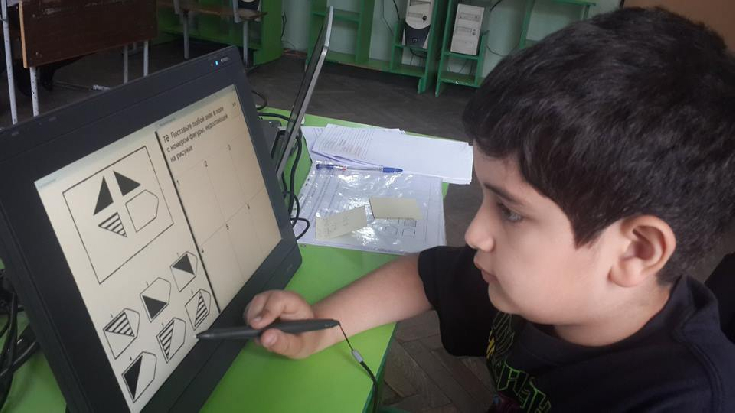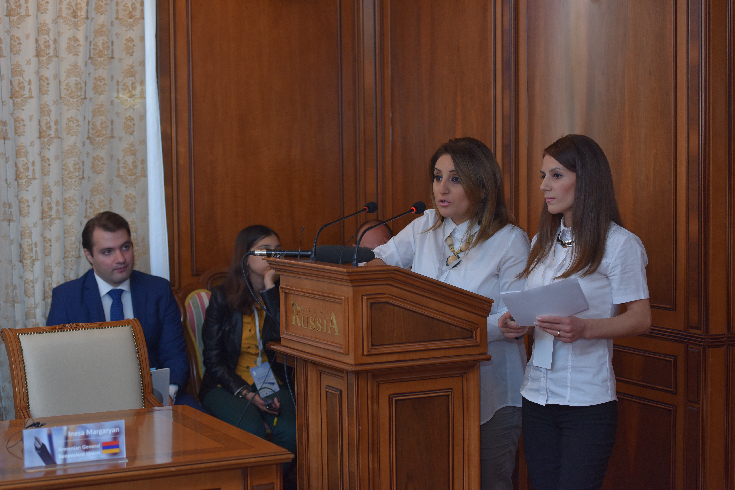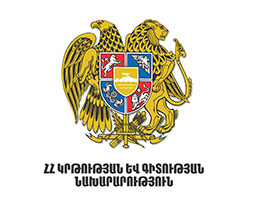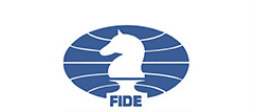
 ChessAcademy.am
ChessAcademy.am
The Research Done by Armenian Psychologists Through Device of Complex Psychological Objective Analysis Called Egoskop. Achieved Results and Future Plans
Psychologists Anzhela Sargsyan and Armine Khachatryan have also been included in "Chess education research center’s" activities and conducted studies to determine the effect of chess on children's psychology and personal development. Their joint work started after the founder of the Chess Academy of Armenia, GM Smbat Lputian took the leadership of Chess and Sports Department in ASPU. He asked the head of Age and pedagogical psychology department Vladimir Karapetyan, to offer the candidature of two young professionals who would deal with the school children and would be glad for mutual cooperation.
In the first period of cooperation psychologists visited Chess Academy of Armenia and took part in the training organized for future teachers of chess. The training materials were being processed by the Candidate of Psychological Sciences, professor Ruben Aghuzumtsyan. In the initial stage psychologists Armine and Anzhela were not involved in the research processes. Instead they were busy with the preparation of seminars’ materials to train all those teachers who were going to teach chess in the primary schools of RA. Soon Chess Academy of Armenia founded "Chess Training and Research Laboratory" and psychologists started their first cooperation with “EmTeDe Medikom” scientific and production company located in Taganrok, from where the egoskop device was bought. This complex was the only device In Armenia used for psychological and objective analysis through testing. Since "Chess Education Research Center" was founded in ASPU by Chess Academy of Armenia, "Chess Training and Research Laboratory" started to operate as a part of it.
As the target group for the first study with Egoskop device was selected a group of children from grades 2-4 was selected that were studying chess in the primary school. The survey was conducted in schools of both Yerevan and Nagorno-Karabakh Republic. This fact had a great influence on the results of the research, as the children in chosen target group from NKR, had never studied chess as it was not as a compulsory subject in secondary schools. This fact enabled the comparative analysis of those children who studied chess as well as those who never had that opportunity. Psychologists examined quality of the pupils' attention: concentration, distribution and portability, as well as logical thinking. The survey results showed that there was a clear difference between the two groups of pupils, thus, the ones who studied chess in school had higher level in the above mentioned mental processes in comparison with the second group of pupils.
During the second stage of the survey as the target group was chosen the group of 4th, 5th and 6th grade pupils. Moreover, the 6th graders never studied chess at school, the 5th graders already finished studying chess and 4th grade pupils were still studying chess. This time they examined not the qualities of pupils' attention but the quality of the planning other internal operations, decision-making speed, efficiency and impact of chess on them. This survey clearly showed the difference between the 5th and 6th grade pupils in the sense that the 5th graders who had the opportunity to study chess, obviously had higher level of development of the mentioned qualities unlike 6th graders. The importance of this study lies in the fact that it revealed the positive impact of chess on the speed of decision making.
Speaking about the impact of chess on pupils, experts point out that any innovation, entering school, first of all, is demonstrating its negative sides, and only later the positive aspects of its impact are being disclosed. It makes no sense to argue that pupils themselves can feel chess positive impact on their own. The evaluators of the process are parents and teachers. Exploring their approach towards chess for over last 5 years we can confidently state that chess has beneficial impact on children. Discussions with them come to prove that chess has a great influence on easier perception of other subjects, such as mathematics. Chess has also an important influence on the perception of language skills. Chess secondary textbooks are written in beautiful Armenian and are full of a number of new terms, which has positive impact on pupils' thinking and way of speaking.
As we know, chess also has a significant influence on the formation of pupils’ personal qualities. By being a game it has a competitive element, and teaches pupils the principles of healthy competition as well as the courage to accept their defeat with dignity. In case of any other sport the child is not given the chance to make decisions and take responsibility for his actions. Even the defeat and the friendly handshake with the opponent result in such human qualities that are impossible to obtain during the process of mastering other subjects.
Talking about the necessary qualities that should characterize chess teachers, the psychologists emphasized the importance of honesty. The teacher has to manifest this human quality by his own example and encourage pupils to be honest. In addition to these qualities, the teacher must fully master chess and its nuances so that he is able to properly deliver them to the pupils. In order to develop these qualities among the teachers, meetings and discussions were organized with them and characteristic features of tolerant and intolerant teachers were analyzed trying to help them to show their best qualities during the teaching process.

Researches in the field of chess have given the chance to psychologists to demonstrate their professional skills, attend meetings with specialists who analyze the role of chess education during the international conferences. Due to the fact that psychologists were working in “Chess educational research center" they had the honor to take advantage of working with such testing device (Egoskop) that was the only one in Armenia. Moreover, the results of surveys done with this device have proven that the device provides the specialists with more concrete results than the surveys in case of which the pupils were filling applications in written form. So, while using this device the researcher has no chance to have its own impact on the results of the survey.
Thus, summarizing the research of psychologists about chess, we can say that they not only proved the importance of teaching chess, but also gave new impetus to psychological research that were going to be made in the future. The fact that the researcher Anzhela Sargsyan has chosen the topic of her dissertation to be "Educational values of chess" comes to prove the above mentioned. At the end of our talk Anzhela and Armine also mentioned that for the enhancement of research activities in this area the results of the researches made in recent years should be thoroughly presented in the international arena. From this perspective, the researchers emphasized the importance of the international conferences entitled "Chess in Schools" and "Theoretical and practical problems of chess education in schools" organized by Chess Academy of Armenia. As a result of the above mentioned connections were established with many specialists from different countries of the world who are also deeply interested in research that are aimed to reveal educational values of chess.
By Tatev Khachatryan





